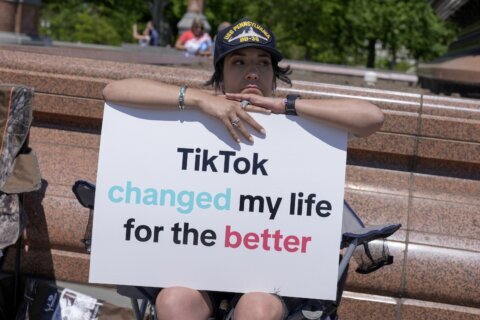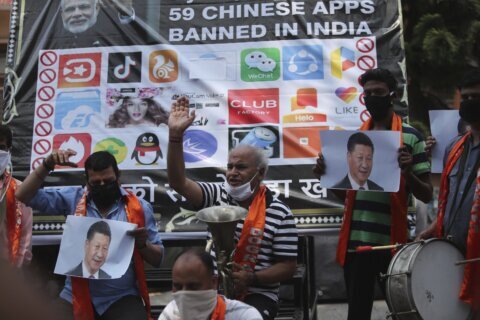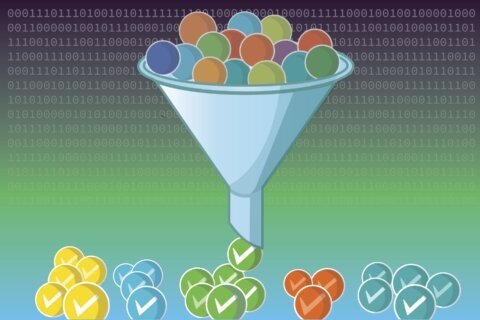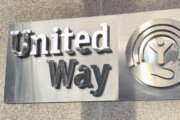Twitter is trying to thwart billionaire Elon Musk’s takeover attempt with a “poison pill” — a financial device that companies have been wielding against unwelcome suitors for decades.
WHAT ARE POISON PILLS SUPPOSED TO DO?
The ingredients of each poison pill vary, but they’re all designed to give corporate boards an option to flood the market with so much newly created stock that a takeover becomes prohibitively expensive. The strategy was popularized back in the 1980s when publicly held companies were being stalked by corporate raiders such as Carl Icahn — now more frequently described as “activist investors.”
After announcing its board had approved a poison pill last Friday while the stock market was closed, Twitter on Monday provided more details in a regulatory filing that no doubt it’s trying to fend off Musk’s $43 billion takeover bid, even though the document didn’t mention its antagonist by name.
Twitter’s plan “works by imposing a significant penalty” on any investor that builds up a stake of at least 15% in the San Francisco company without the board’s approval. The San Francisco company’s plan will be triggered if a shareholder accumulates a stake of 15% or more. Musk, best known as CEO of electric car maker Tesla, currently holds a roughly 9% stake, but has raised the possibility of buying more stock.
If Musk were to hit the 15% threshold, the Twitter board can then grant shareholders as of April 25 the right to buy one-thousandth of a share of preferred stock for each common share they own, at a price of $210. That option make it virtually impossible for anyone to buy Twitter, including Musk, the world’s richest person with an estimated fortune of nearly $270 billion.
CAN A POISON PILL BE A NEGOTIATING PLOY?
Although they are supposed to help prevent an unsolicited takeover, poison pills also often open the door to further negotiations that can force a bidder to sweeten the deal. If a higher price makes sense to the board, a poison pill can simply be cast aside along with the acrimony it provoked, clearing the way for a sale to completed.
True to form, Twitter left its door open by emphasizing that its poison pill won’t prevent its board from “engaging with parties or accepting an acquisition proposal” at a higher price.
Adopting a poison pill also frequently results in lawsuits alleging that a corporate board and management team is using the tactic to keep their jobs against the best interests of shareholders. These complaints are sometimes filed by shareholders who think a takeover offer is fair and want to cash out at that price or by the bidder vying to make the purchase.
HOW DID ELON MUSK REACT TO TWITTER’S ANNOUNCEMENT?
Musk, a prolific tweeter with 82 million followers on Twitter, hasn’t said anything explicitly about the company’s poison pill yet.
But he posted cryptic tweet on Saturday hinting he may take his current bid of $54.20-per-share directly to Twitter’s shareholders in what is known as a tender offer. “Love Me Tender,” Musk tweeted with musical notes surrounding the words that Elvis Presley made famous in a 1956 hit song.
In another tweet last week, Musk also signaled he was prepared to fight. “If the current Twitter board takes actions contrary to shareholder interests, they would be breaching their fiduciary duty,” Musk tweeted. “The liability they would thereby assume would be titanic in scale.”
Musk has publicly said that his current bid is his best and final offer for Twitter, but other corporate suitors have made similar statements before ultimately upping the ante. Given his immense wealth, Musk would seem to have deep enough pockets to raise his offer, although he is still working out how to finance the proposed purchase.
HOW HAS THIS DEFENSE WORKED IN THE PAST?
Takeover tussles often dissolve into gamesmanship that include poison pills and other maneuvers designed to make a buyout more difficult. That’s what happened in one of the biggest and most drawn out takeover dances in Silicon Valley history.
After business software maker Oracle made an unsolicited $5.1 billion offer for its smaller rival PeopleSoft in June 2003, the two companies spent the next 18 months fighting with each other.
As part of its defense, PeopleSoft not only adopted a poison pill that authorized the board to flood the market with more shares, it also created what it called a “customer assurance program.” That plan promised to pay customers five times the cost of their software licenses if PeopleSoft was sold within the next two years, creating an estimated liability of up to $800 million for an acquiring company.
PeopleSoft also got another helping hand when the U.S. Department of Justice filed an antitrust lawsuit seeking to block a takeover, although a judge ruled in Oracle’s favor.
Even though the company ended up selling to Oracle, PeopleSoft’s defense strategy paid off for its shareholders. Oracle’s final purchase price was $11.1 billion — more than twice its original bid.
Copyright © 2024 The Associated Press. All rights reserved. This material may not be published, broadcast, written or redistributed.







